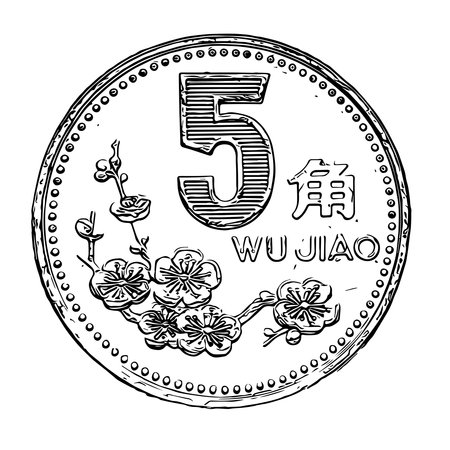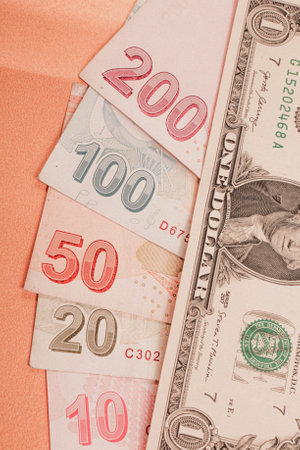Understanding Feng Shui: Origins and Core Principles
Feng Shui, pronounced “fung shway,” is an ancient Chinese practice that focuses on arranging our surroundings to promote harmony, balance, and positive energy—known as Qi (pronounced “chee”). Before we dive into the conversation about cultural appropriation versus authentic Feng Shui in the United States, it’s important to understand where this tradition comes from and how it is truly practiced.
The Historical Roots of Feng Shui
Feng Shui originated over 3,000 years ago in China. Its early forms were used to choose burial sites for emperors and later evolved into guiding principles for building homes, cities, and even agricultural layouts. The term itself means “wind” (feng) and “water” (shui), symbolizing the flow of natural elements that influence our lives.
Core Concepts of Traditional Feng Shui
At its heart, Feng Shui is about creating environments that support well-being and success. It uses a blend of philosophy, astronomy, and environmental science. Here are some foundational concepts:
| Concept | Description |
|---|---|
| Qi (Chi) | The vital life force or energy that flows through everything. Good Feng Shui aims to enhance the flow of Qi in a space. |
| Yin & Yang | The duality in nature—opposite forces like light/dark or feminine/masculine—that must be balanced for harmony. |
| The Five Elements | Wood, Fire, Earth, Metal, Water. Each element represents different qualities and is used intentionally in design. |
| The Bagua Map | An octagonal chart placed over floor plans to analyze how different areas relate to aspects like health, wealth, family, and career. |
| Compass Directions | Using a traditional Luo Pan compass to determine optimal orientation for buildings and rooms. |
How Traditional Feng Shui Is Practiced
A professional Feng Shui practitioner does more than suggest lucky colors or rearrange furniture. They consider local geography, the home’s history, astrology, and much more. Authentic practice often includes:
- On-site consultations using traditional tools and calculations.
- Analysis based on birth dates of occupants (Chinese astrology).
- Recommendations tailored specifically to each environment—not just generic tips.
- Respect for cultural rituals such as blessing ceremonies or the use of symbolic objects.
Why Context Matters in Authenticity
The true spirit of Feng Shui lies in understanding these roots—not just adopting symbols or superficial trends. By appreciating its origins and core principles, we set the stage for practicing or adapting Feng Shui in respectful ways within American homes and workplaces.
2. What is Cultural Appropriation? A U.S. Perspective
Cultural appropriation is when elements of one culture are taken and used by members of another culture, often without understanding, respect, or acknowledgment of their original meaning or significance. In the United States, this concept has become an important topic, especially as more people explore global traditions like feng shui. It’s essential to recognize the difference between appreciating a culture and appropriating it.
Understanding Cultural Appropriation in Everyday Life
In the U.S., cultural appropriation can happen in many ways—through fashion, music, food, art, and even spiritual practices. Sometimes, what starts as admiration for another culture can cross the line into disrespect if symbols or traditions are used out of context or stripped of their deeper meaning.
Examples Related to Eastern Spiritual Practices and Design Trends
| Example | Why Its Problematic |
|---|---|
| Using Buddha statues as simple home decor | Buddha figures are sacred in Buddhism, but using them only for aesthetics can ignore their spiritual significance. |
| Incorporating feng shui objects without understanding their purpose | Placing items like bagua mirrors or lucky bamboo based on trends rather than true practice can reduce feng shui to a design fad. |
| Wearing traditional Asian attire as a costume | This can trivialize meaningful clothing that holds cultural importance. |
Navigating Respectful Practice in the U.S.
It’s natural to be inspired by other cultures, but respectful engagement means learning about the origins and meanings behind practices like feng shui. Instead of simply adopting trends, consider seeking authentic sources, asking questions, and honoring the traditions with care. This approach helps create a richer and more genuine connection with the wisdom these practices offer.

3. Common Misinterpretations of Feng Shui in America
Feng Shui has become a buzzword in the American design world, but its true meaning is often lost in translation. Many people in the U.S. see Feng Shui as simply moving furniture around or adding a few lucky charms, but this ancient Chinese practice is much deeper and more complex. Lets explore some of the most common ways Feng Shui gets misinterpreted and misused in American culture and the design industry.
Widespread Misconceptions
One of the biggest misconceptions is that Feng Shui is just about interior decorating. While it does influence how we arrange spaces, authentic Feng Shui considers much more—like energy flow (qi), personal birth elements, and harmony with nature. In America, its often marketed as a quick fix for luck or wealth, which oversimplifies its true purpose.
Oversimplification in Pop Culture
TV shows, magazines, and social media often reduce Feng Shui to a set of “dos and donts,” such as:
| Simplified Advice | Authentic Practice |
|---|---|
| “Never have your bed facing the door” | This advice depends on many factors like room layout, individual birth details, and overall house orientation. |
| “Put a money plant in the southeast corner” | The placement of plants should consider light, airflow, and personal energy needs—not just generic corners. |
| “Hang a mirror to reflect negative energy” | Mirror placement can help or harm qi flow; it requires expert analysis rather than one-size-fits-all solutions. |
Commercial Misuse
The American design industry often uses Feng Shui as a marketing tool. Products labeled “Feng Shui crystals” or “Feng Shui fountains” are sold with promises of instant prosperity or happiness. This commercial approach strips away cultural context and depth, turning a holistic tradition into just another trend.
Why Authenticity Matters
When Feng Shui is misunderstood or oversimplified, its true benefits are lost. The practice is about achieving balance and harmony—not just following rules or buying products. Understanding this helps us respect its origins and ensures were not just borrowing, but truly honoring an important cultural wisdom.
4. Best Practices for Respectful Engagement
When exploring Feng Shui in the United States, it is important to approach this ancient Chinese practice with respect and cultural sensitivity. Here are some practical guidelines that can help Americans engage with Feng Shui authentically and avoid cultural appropriation:
Learn from Authentic Sources
Start by seeking information from reputable sources rooted in traditional Feng Shui. Books written by recognized Feng Shui masters, courses offered by established organizations, and materials recommended by cultural experts are all valuable resources. Avoid relying solely on social media trends or commercialized content that may distort the original meaning of Feng Shui.
Collaborate with Cultural Experts
If you plan to make significant changes based on Feng Shui principles—whether at home, work, or in your community—consider consulting with certified Feng Shui consultants who have a deep understanding of both the philosophy and its cultural context. This not only ensures accuracy but also supports professionals who are dedicated to preserving authentic practices.
Comparison Table: Approaches to Learning Feng Shui
| Approach | Description | Recommended? |
|---|---|---|
| DIY via Social Media | Following tips from influencers or viral posts without verifying authenticity | No |
| Workshops with Certified Practitioners | Attending classes led by experienced Feng Shui experts with proper credentials | Yes |
| Reading Popular Home Décor Blogs | Using general design advice labeled as “Feng Shui” without deeper context | No |
| Cultural Exchange Events | Participating in events hosted by Chinese cultural centers or communities | Yes |
Acknowledge Cultural Roots and Give Credit
Whenever you share your interest in Feng Shui or apply its principles, acknowledge its origins in Chinese culture. Giving credit helps raise awareness about its rich heritage and shows appreciation for the wisdom behind the practice.
Avoid Stereotyping or Oversimplifying
Respectful engagement means moving beyond stereotypes or oversimplified interpretations. Instead of viewing Feng Shui as just a trend or decorative style, take time to learn about its philosophies and significance in daily life.
Tips for Respectful Practice
- Ask questions and listen when engaging with practitioners or community members.
- Support local businesses owned by Asian Americans offering authentic Feng Shui services.
- Avoid using sacred symbols purely for aesthetics without understanding their meaning.
By following these best practices, Americans can embrace Feng Shui respectfully, enriching their lives while honoring the culture that created it.
5. Supporting Authenticity and Cross-Cultural Understanding
When practicing Feng Shui in the United States, it’s important to honor the Chinese heritage from which this ancient art comes. Authentic Feng Shui is deeply rooted in thousands of years of Chinese philosophy, tradition, and culture. Respecting these origins not only brings more depth and meaning to your practice, but also helps avoid cultural appropriation.
Honoring Chinese Heritage
True respect for Feng Shui means taking time to understand its historical context, symbols, and values. This might involve reading reputable books by Chinese authors or seeking guidance from trained practitioners who are knowledgeable about its origins. By acknowledging where Feng Shui comes from and how it developed, you show appreciation for the culture that created it.
Encouraging Representation
Representation matters when practicing any cultural tradition outside its original context. In the U.S., it’s important to amplify voices from the Chinese community who are experts in Feng Shui. This ensures that practices remain authentic and that learning continues to be shaped by those with direct cultural ties.
| Practice | Approach That Honors Authenticity | Common Pitfall |
|---|---|---|
| Learning Sources | Study from reputable Chinese authors, certified practitioners, or community organizations | Relying only on Westernized blogs or commercial guides without understanding roots |
| Cultural Symbols | Use traditional items with knowledge of their significance (e.g., Bagua mirrors, Fu dogs) | Using objects as mere décor without respect for their meanings |
| Community Engagement | Attend workshops or events hosted by Chinese cultural groups | Practicing alone without input from the originating culture |
Fostering Genuine Cross-Cultural Exchange
A meaningful approach to Feng Shui in America involves creating opportunities for genuine cross-cultural exchange. This could mean collaborating with local Chinese cultural centers or inviting guest speakers to share their expertise. When both cultures share ideas openly and respectfully, everyone benefits—and your Feng Shui practice becomes richer and more informed.
The Benefits of a Thoughtful Approach
- Deeper understanding: Learning directly from the source adds layers of meaning to your practice.
- Diverse perspectives: Engaging with practitioners from different backgrounds broadens your view.
- Cultural respect: Thoughtfulness prevents misrepresentation and honors traditions.
- Sustainable learning: Ongoing dialogue ensures practices evolve respectfully over time.
Your Role in Building Respectful Practice
No matter where you are on your Feng Shui journey, supporting authenticity and cross-cultural understanding helps create an inclusive environment where everyone can learn and grow together. By honoring the roots of Feng Shui and encouraging open exchange, you help protect the integrity of this cherished tradition while making it meaningful within the American context.


